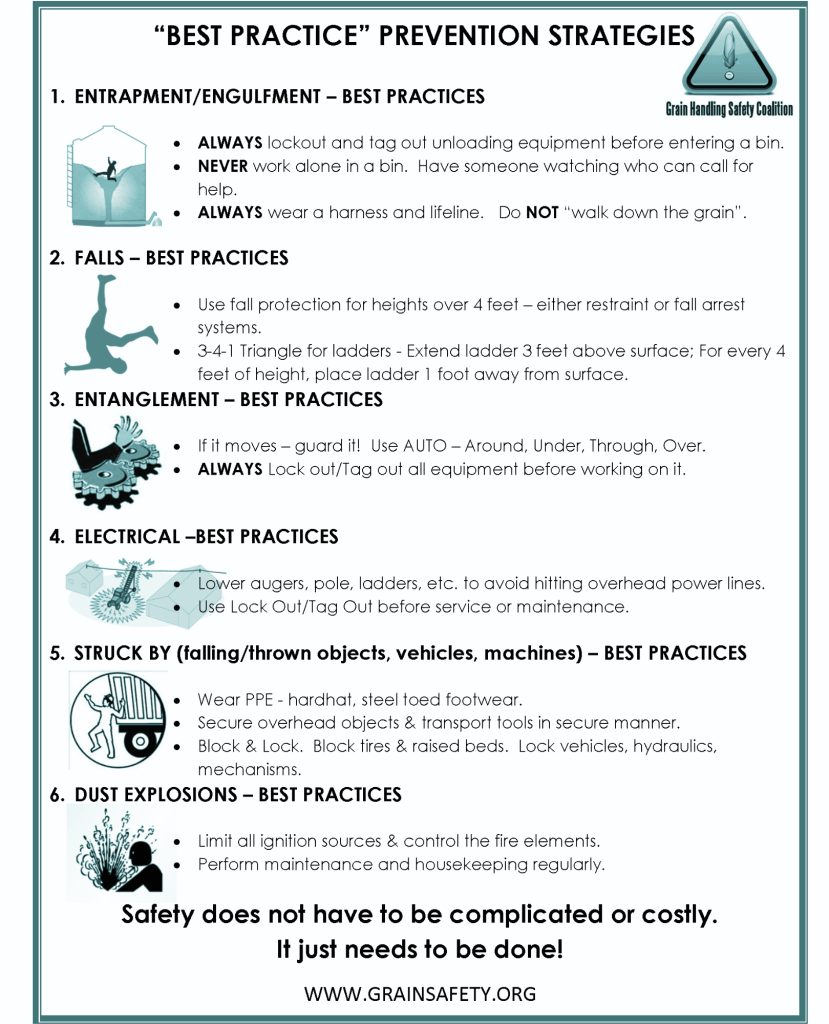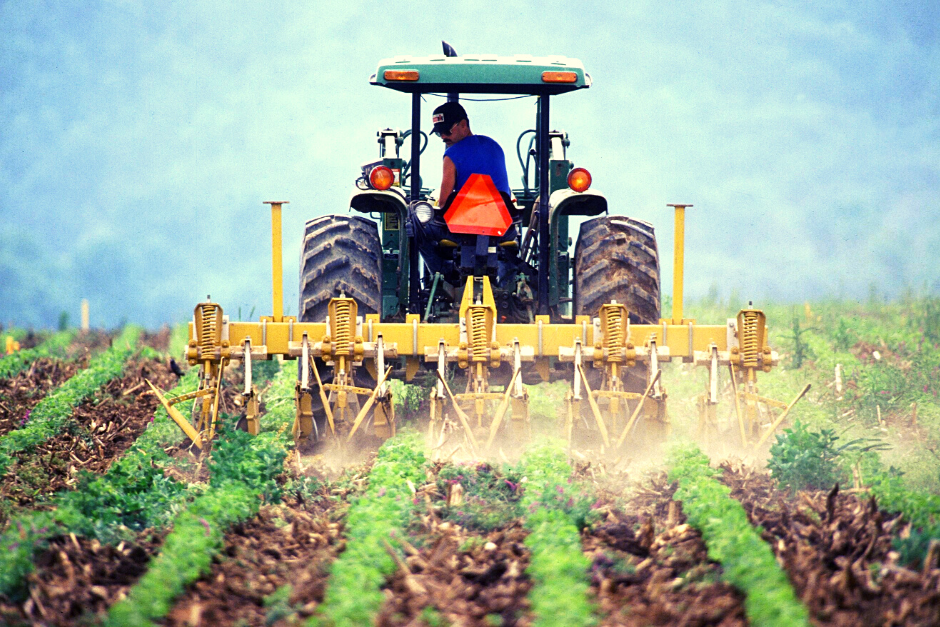What occupation is twice as deadly as law enforcement, and five times more dangerous than being a firefighter? Answer: Farming. This may be surprising to people who live outside of rural America, but agricultural workers know exactly how hazardous their job can be on any given day.
Harvest season is upon us, and with some education, preparation and care, those working to put food on our tables can stay safe. Here are some basic precautions farmers should consider:
FARM MACHINERY SAFETY
- Make sure equipment is completely powered off before attempting to make any repairs.
- Do not wear jewelry or baggy clothing near moving equipment.
- Use PPE (Personal Protective Equipment) – safety glasses and hearing protection.
- Don’t leave running equipment unattended.
- Take time to tie down cargo loads.
- Make sure all lights work before taking equipment on the road. Make sure headlights and taillights are clean.
- Drive at reasonable speeds on the road that ensure you stay in control.
GRAIN BIN SAFETY
- Keep children away from grain bins, beds and wagons.
- Lock out the control circuit before entering a bin, whether grain is flowing or not.
- Don’t count on someone outside the bin to hear your shouted instructions.
- If you become trapped in a bin of flowing grain with nothing to hold onto, but you are still able to walk, stay near the outside wall. Keep walking until the bin is empty or grain flow stops. If you are covered by flowing grain, cup your hands over your mouth, and take short breaths until help arrives.
- If someone becomes submerged in grain, assume he or she is alive, and begin rescue operations immediately. Turn on the fan to move air into the bin. Cut large holes around the bin, approximately 5 feet up from the base, to empty grain. (If you cut too many holes, the bin may collapse on you.) Use the front-end loader of a tractor, an abrasive saw or an air chisel. A cutting torch is a last resort – it could cause a fire or an explosion from dust and fumigant residue.
- Never attempt a rescue by going into the grain yourself. Call 911. Your local emergency team has the training and equipment to do the job safely.

SAFETY AROUND LIVESTOCK
- Wear appropriate clothing (Work boots, (no open-toed shoes), long-sleeved shirts and pants, etc.)
- Be calm and avoid sudden movements that may spook animals.
- Use extra caution around adult females and males with newborns.
- Have a regular routine when feeding or changing pastures.
- Have an escape route planned in corrals and close quarters.
- Avoid blind spots behind animals that may kick.
- Work with others if possible and consider your physical condition around livestock.

